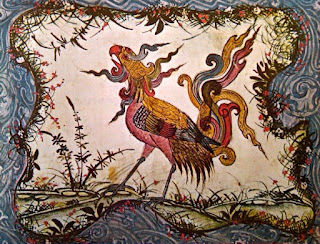Egypt Mythology
Egypt mythology Egyptian folklore is the assortment of legends from old Egypt, which portray the activities of the Egyptian divine beings for of figuring out their general surroundings. The convictions that these legends express are a significant piece of old Egyptian religion. Legends show up every now and again in Egyptian compositions and workmanship, especially in brief tales and in strict material like songs, ceremonial texts, funerary texts, and sanctuary adornment. These sources seldom contain a total record of a fantasy and frequently portray just short parts.
Cloister adherent, the encapsulation of the early stage waters, lifts the bark of the sun god Ra out of sight right now of creation.
Enlivened by the patterns of nature, the Egyptians considered time in the present to be a progression of repeating designs, though the earliest timeframes were direct. Legends are set in these earliest times, and fantasy sets the example for the patterns of the present. Present occasions rehash the occasions of fantasy, and in doing so recharge maat, the essential request of the universe. Among the main episodes from the mythic past are the creation fantasies, in which the divine beings structure the universe out of early stage bedlam; the accounts of the rule of the sun god Ra upon the earth; and the Osiris legend, concerning the battles of the divine beings Osiris, Isis, and Horus against the problematic god Set. Occasions from the current that may be viewed as fantasies incorporate Ra's day to day venture through the world and its powerful partner, the Duat. Repeating subjects in these mythic episodes incorporate the contention between the upholders of maat and the powers of turmoil, the significance of the pharaoh in keeping up with maat, and the persistent passing and recovery of the divine beings.
The subtleties of these sacrosanct occasions vary extraordinarily starting with one text then onto the next and frequently appear to be inconsistent. Egyptian fantasies are basically figurative, deciphering the embodiment and conduct of gods into terms that people can comprehend. Every variation of a legend addresses an alternate representative viewpoint, improving the's comprehension Egyptians might interpret the divine beings and the world.
Folklore significantly affected Egyptian culture. It enlivened or impacted numerous strict customs and gave the philosophical premise to majesty. Scenes and images from fantasy showed up in workmanship in burial places, sanctuaries, and talismans. In writing, fantasies or components of them were utilized in stories that reach from humor to moral story, exhibiting that the Egyptians adjusted
folklore to fill a wide assortment of needs.


Comments
Post a Comment